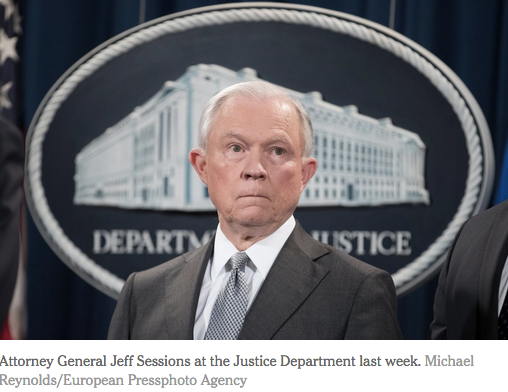On May 12, Mr. Sessions announced a drastic policy ordering federal prosecutors to pursue the toughest possible charges against crime suspects in all cases, rescinding an Obama administration directive that focused on reducing punishments for low-level, nonviolent offenders, mostly in drug cases, and steering more law-enforcement resources toward the bigger fish. That approach was working: The federal prison population started to drop for the first time in years, even as crime has remained at historic lows.
Instead of acknowledging these gains, Mr. Sessions has clung to the familiar myth that longer, harsher sentences reduce crime and increase public safety. The evidence shows the opposite: To bring down recidivism, a punishment’s swiftness and certainty matter far more than its length. Longer sentences may even lead to more reoffending.
Mr. Sessions’s outdated ideas have been rebuked across the political spectrum. Eric Holder, the attorney general who issued the Obama-era policy, called the new approach “dumb on crime.” Senator Rand Paul, Republican of Kentucky, pointed out that people of color suffer disproportionately from mandatory-minimum sentences for drug crimes, and said Mr. Sessions’s charging policy “will accentuate the injustice.” A group of 31 current and former state and local prosecutors — not people ordinarily associated with going soft on crime — signed an open letter calling the directive an “unnecessary and unfortunate return” to harmful and discredited practices. Mr. Sessions has taken a sledgehammer to this rare and fragile bipartisanship, at least on the federal level. And while it’s too soon to know how the new policy will affect sentences, prison populations, or recidivism rates, Mr. Sessions’s assertion that the justice system is not harsh enough — however isolated that view — could trickle down and affect justice reform in the states.




